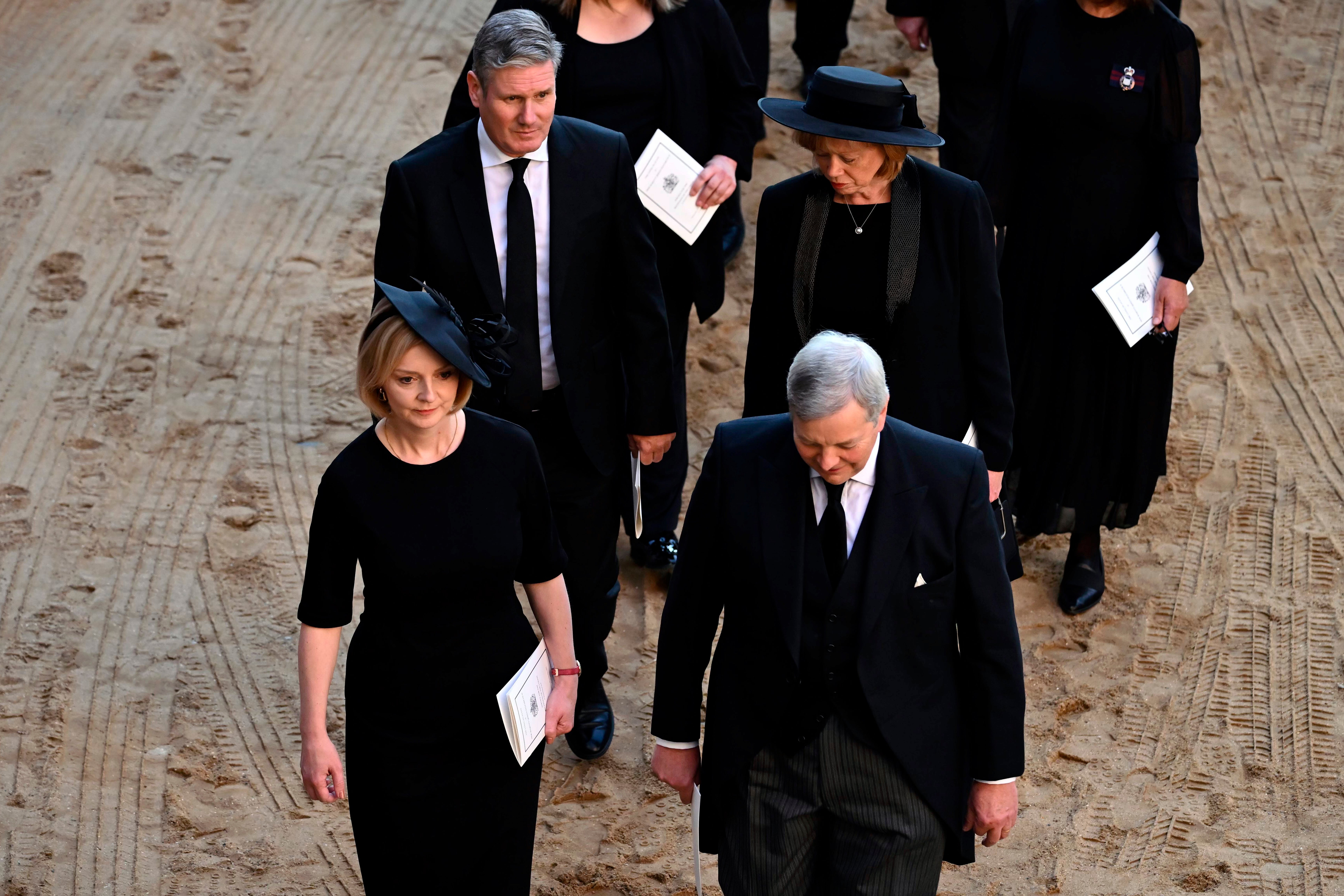Westminster politics has entered a period of almost completely silent inertia
It all adds to the sense of rudderlessness in our government at a time when the challenges it faces can hardly be bigger, writes Andrew Woodcock


For the political journalists of Westminster, this has been a more than usually peculiar week.
It’s not just the fanfares sounding outside our office windows, the gaggles of men in tabards hanging around at the bottom of the stairwell, the carpet of sand strewn over the cobbles of New Palace Yard only to be swept up a few hours later, the sudden removal of our bike rack (presumably to somewhere more respectful) or the closures of roads and corridors which have made getting to and from the office an ever-changing obstacle course.
All of that is only to be expected at a moment like this. The Independent’s parliamentary office is in a little crenellated tower literally on top of Westminster Hall, where Queen Elizabeth II is currently lying in state within a few dozen yards of my desk. I can hardly complain if history chooses to take place outside my window.
What has really made it peculiar, though, is the silence. Not literal silence. Apart from the aforementioned fanfares, there is currently a constant background buzz of people emerging from the silence of Westminster Hall to tell each other what a moving experience it was to attend the lying-in-state.
But the world of politics has entered a period of almost complete omerta. Interviews have stopped, speeches have stopped, government departments have ceased their regular flow of announcements and – most obviously – parliament has shut down while the focus turns entirely on the late Queen and the new King.
If you call a normally gossipy MP about a contentious issue, you get the reply: “Well I have got something to say about that, but not this week.”
Keir Starmer has even sent out instructions to all Labour MPs to say nothing about anything apart from their sorrow over the Queen’s passing. For a while, it seemed like Labour MPs had been ordered to replace their Twitter avatars with plain black circles, which seemed an odd way to pay respects.
Meanwhile, we lobby reporters are receiving lengthy – and very useful – briefings on the number of portable toilets and first aid tents on the route for those queuing to file past the Queen’s coffin and the thorny question of whether Liz Truss is on a tour with the new King or simply attending several of the same memorial events as him.
But questions about, say, the cost of living crisis, the war in Ukraine, proposals to scrap anti-obesity programmes, plans to lift the cap on bankers’ bonuses, have been met with a polite refusal to comment. Under a self-imposed purdah, government spokespeople are able to give out factual information but nothing more, they explain.
This is all the more frustrating as we have only just come out of a six-week period of near silence, as government spokespeople explained that it really wouldn’t be appropriate for them to comment on a whole range of policy issues which would be a matter for the new PM.
Once the new PM arrived, we had a scant two days when information was forthcoming, and then silence again.
With conference season fast approaching, MPs are set to be called back to parliament for three days next week before going back into recess. As things stand, between 21 July and 11 October, the Commons will have sat for nine days, two of them for tributes to the Queen and one for swearing allegiance to the new King.
All of this is a coincidence of timing, of course. And it’s clear that no politician would try to draw attention to themselves in the week after a monarch’s death. But it all adds to the sense of rudderlessness in our government at a time when the challenges it faces can hardly be bigger.
Yours,
Andrew Woodcock
Political editor






Join our commenting forum
Join thought-provoking conversations, follow other Independent readers and see their replies
6Comments